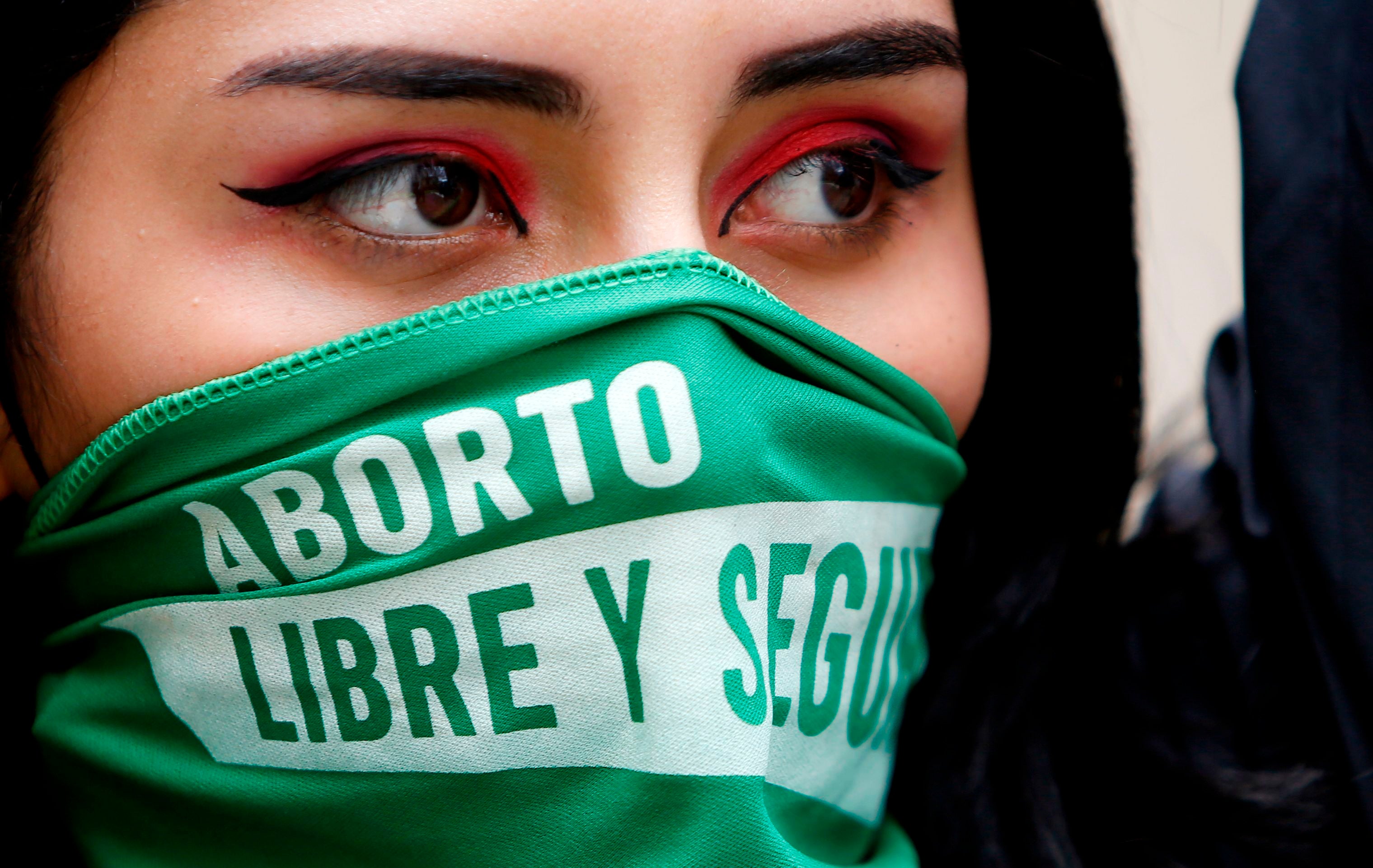Colombia decriminalises abortion in ‘historic victory’ for women’s rights
Women can now have an abortion during first 24 weeks in latest win for reproductive rights in Latin America

Your support helps us to tell the story
From reproductive rights to climate change to Big Tech, The Independent is on the ground when the story is developing. Whether it's investigating the financials of Elon Musk's pro-Trump PAC or producing our latest documentary, 'The A Word', which shines a light on the American women fighting for reproductive rights, we know how important it is to parse out the facts from the messaging.
At such a critical moment in US history, we need reporters on the ground. Your donation allows us to keep sending journalists to speak to both sides of the story.
The Independent is trusted by Americans across the entire political spectrum. And unlike many other quality news outlets, we choose not to lock Americans out of our reporting and analysis with paywalls. We believe quality journalism should be available to everyone, paid for by those who can afford it.
Your support makes all the difference.Colombia has become the latest country in Latin America to decriminalise abortion in a move campaigners hailed as a “historic victory” for millions of women who have long faced fiercely restrictive abortion policies.
The Constitutional Court of Colombia voted to decriminalise terminations during the first 24 weeks of pregnancy, after months of delays over the long-awaited decision – with the measures coming into effect straight away.
In 2006, Colombia decriminalised pregnancy terminations for women whose life or health is at risk, or in cases where there are fatal foetal abnormalities, or if the pregnancy is the by-product of rape or incest.
But campaigners told The Independent that women are still routinely blocked from having an abortion in these circumstances.
The current situation sees women in Colombia imprisoned simply for having an abortion, while those who have fallen pregnant after being raped are forced to continue with their pregnancy.
The Guttmacher Institute, a reproductive rights group, estimates 400,000 abortions were performed in Colombia in 2008 but less than one per cent of these procedures were carried out legally.
Erika Guevara Rosas, Amnesty International’s America director, said: “We celebrate this ruling as a historic victory for the women’s movement in Colombia that has fought for decades for the recognition of their rights.
“Women, girls and people able to bear children are the only ones who should make decisions about their bodies. Now, instead of punishing them, the Colombian authorities will have to recognise their autonomy over their bodies and their life plans.
“Following the legalisation of abortion in Argentina last year and the recent decriminalisation in Mexico, this ruling is yet another example of the unstoppable momentum of the green tide in Latin America.”
A study by Mesa Por la Vida y Salud de las Mujeres, an NGO, found that at least 400 women and girls in Colombia are criminalised for having abortions each year.
Paula Avila-Guillen, executive director of the Women’s Equality Centre, said: “Colombia made history. We applaud the Constitutional Court’s legal and political courage in recognising that women and girls are not second-class citizens.
“In constitutionally protecting our autonomy over our own bodies and lives, the court is changing the lives of millions of vulnerable women and girls disproportionally harmed by abortion restrictions.”
The freedom for women to finally make their own choices about their pregnancies and their bodies is fundamental to disrupting the cycle of poverty that so many in Colombia face
The international human rights lawyer said Colombia’s decision to decriminalise abortion would have a “ripple effect” in other nations in the region, which still have highly restrictive abortion laws.
Abortion rights campaigners celebrated the decision by marching in the Colombian capital, Bogota, and in other key cities, waving green flags and dancing.
Eugenia Lopez Uribe, International Planned Parenthood Federation’s (IPPF) regional director for Americas and the Caribbean region, said Colombia’s decision was “especially remarkable when we consider the current fragility of abortion rights globally and the anti-choice movements which continue to plague nations across the world, including in countries close to home like the United States of America.”
Argentina became the first major Latin American country to legalise abortion at the end of December 2020, while Mexico’s Supreme Court ruled in September last year that criminal penalties for having a pregnancy terminated were unconstitutional.
Marta Royo, executive director of Profamilia, the IPPF’s member association in Colombia, said: “Today is a groundbreaking moment for the people of Colombia and a long-overdue guarantee of reproductive rights and dignity for all those who need abortion care, especially poor and rural women, who bear the brunt of restrictive abortion policies.
“The decriminalisation of abortion up to 24 weeks in Colombia, and the Green Wave movement across Latin America, is centred not just on public health, but also the full lives, citizenship and human rights of girls, adolescents, and women – who, for multiple reasons, including inequity, access to education, gender-based violence and barriers to healthcare – continue to face unintended pregnancies.
“The freedom for women to finally make their own choices about their pregnancies and their bodies is fundamental to disrupting the cycle of poverty that so many in Colombia face.”
Ms Royo argued that the “monumental decision” was a victory for healthcare workers, too, who will “finally be recognised as people who simply care about the needs of others”.



Join our commenting forum
Join thought-provoking conversations, follow other Independent readers and see their replies
Comments